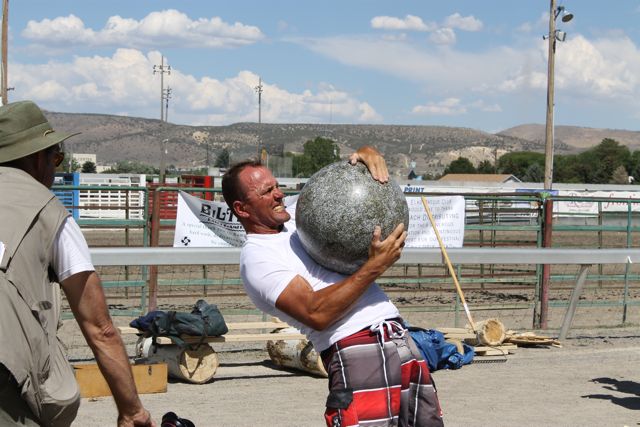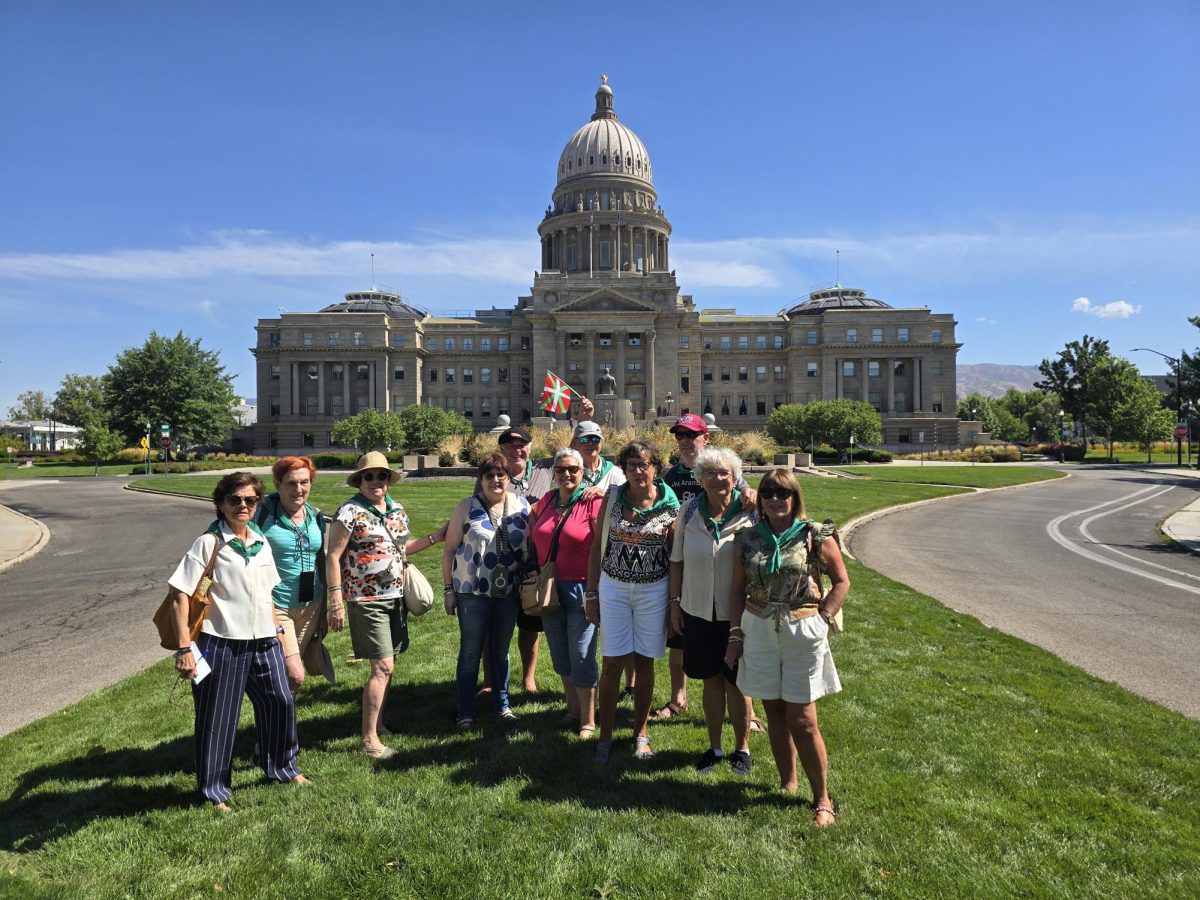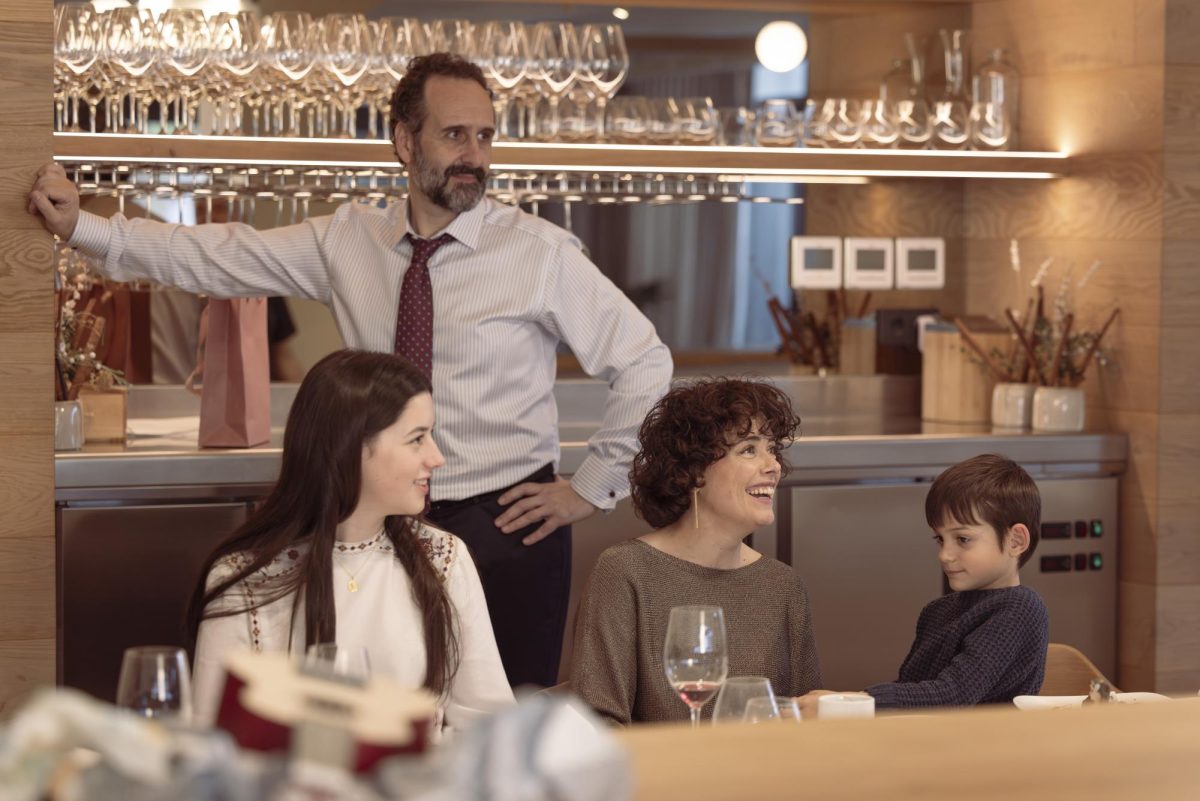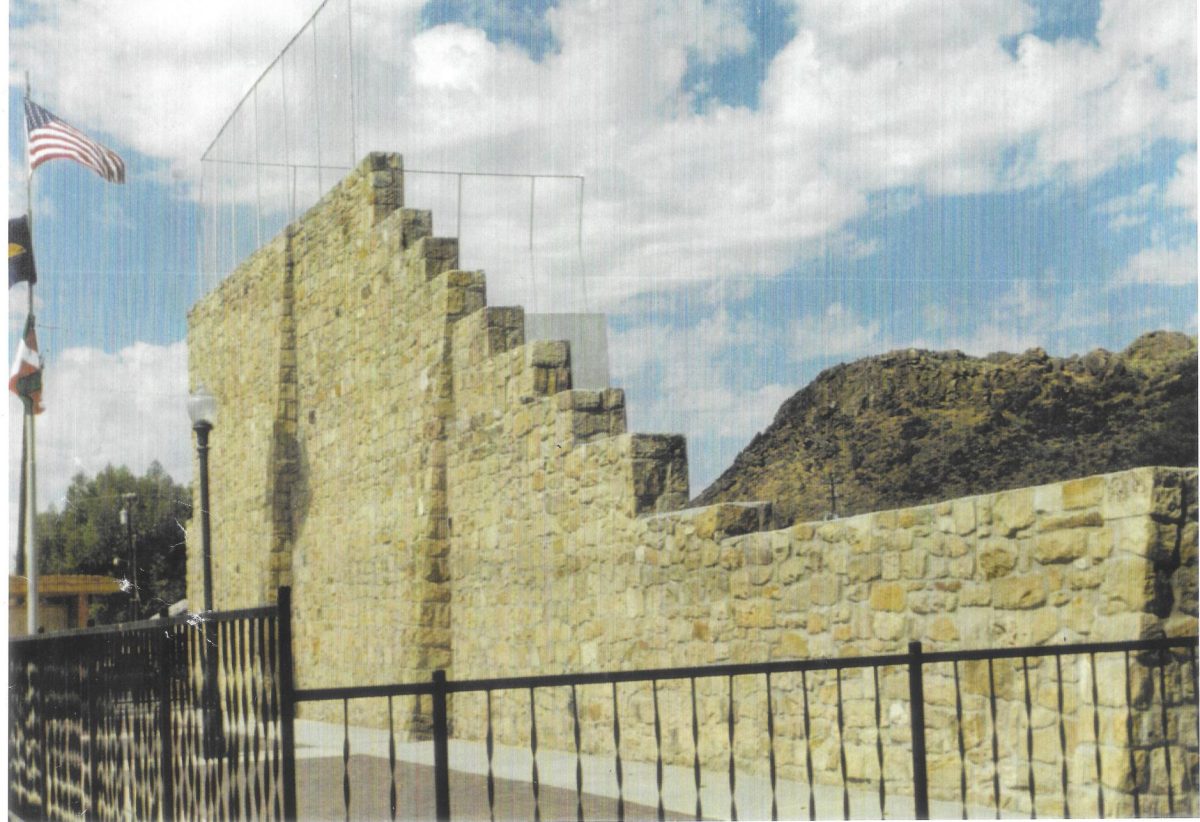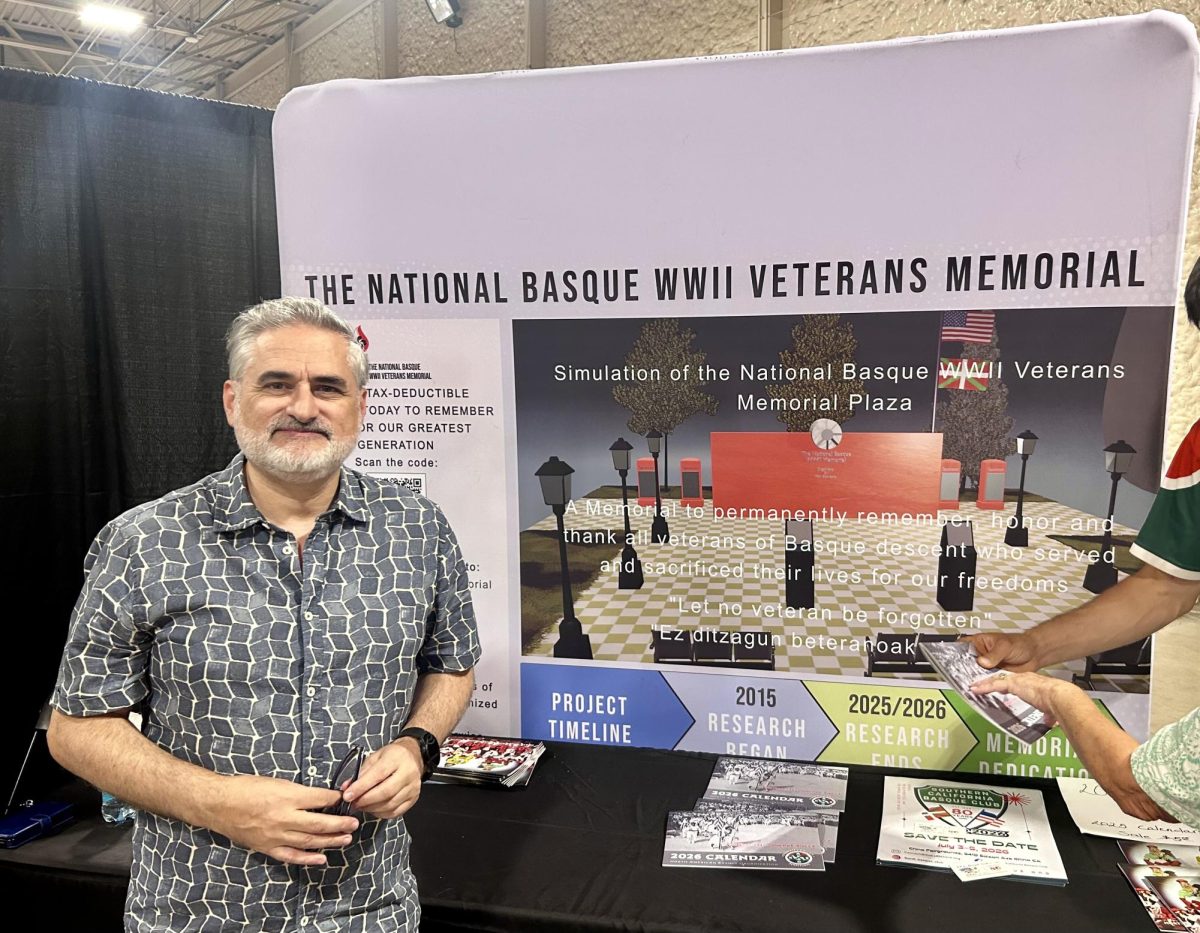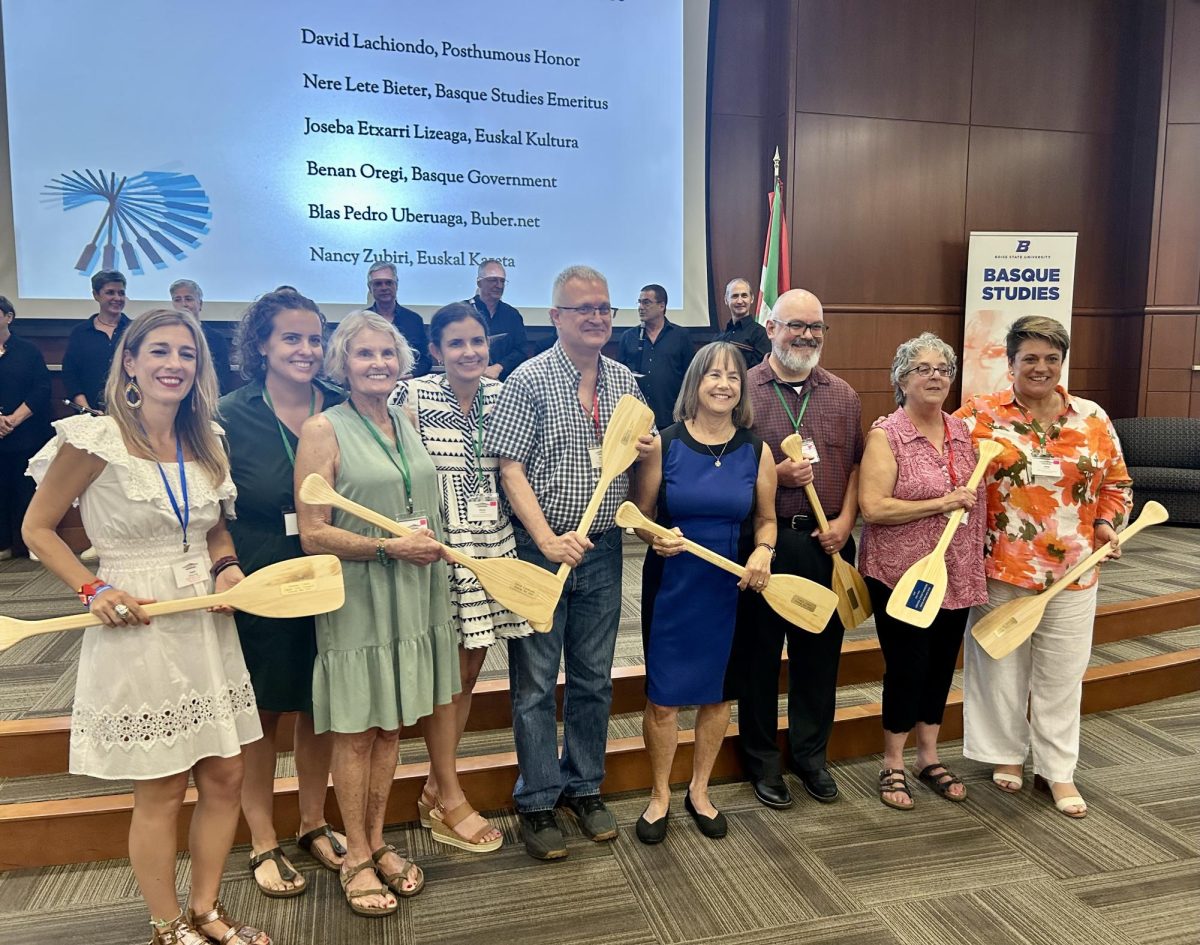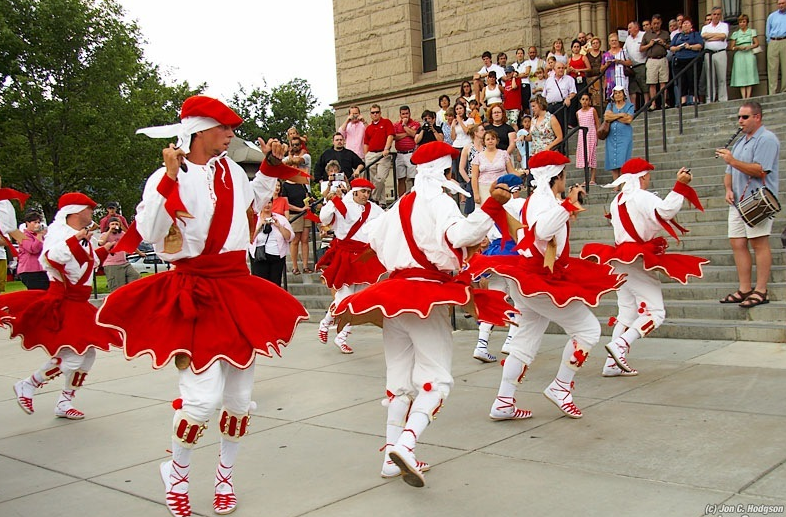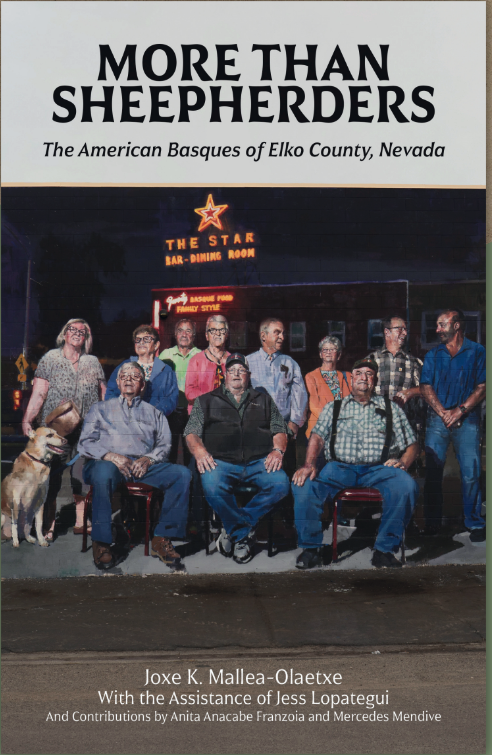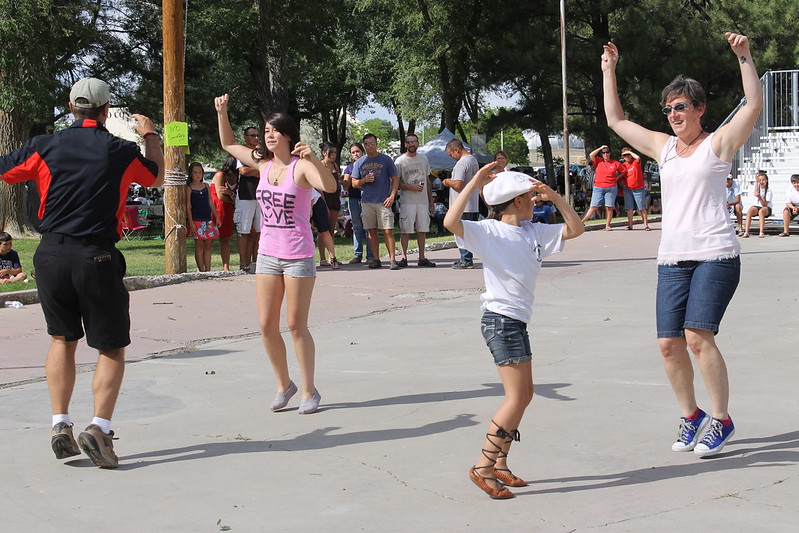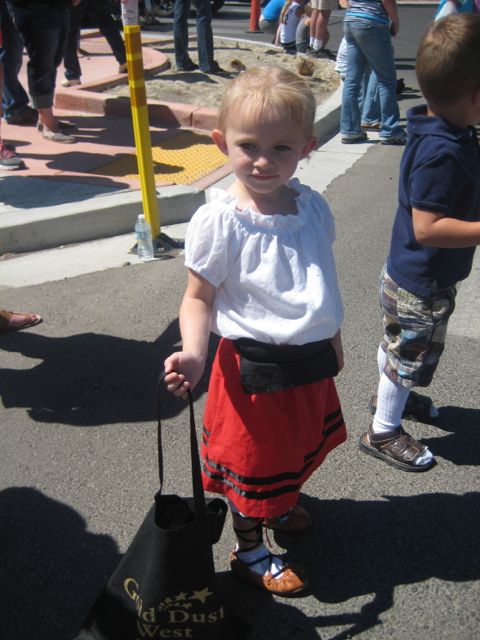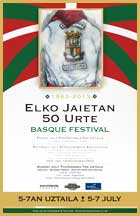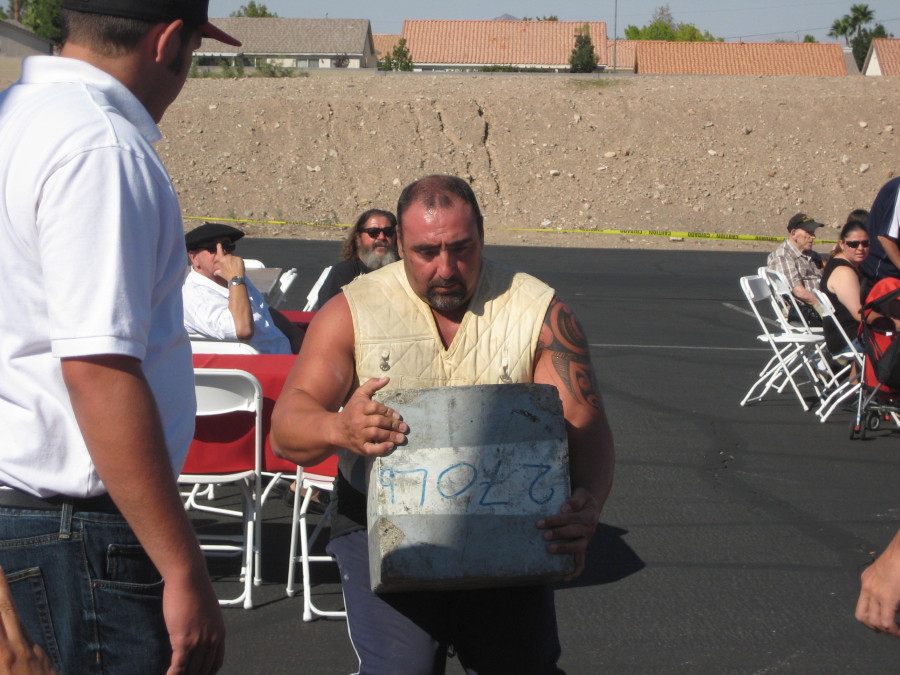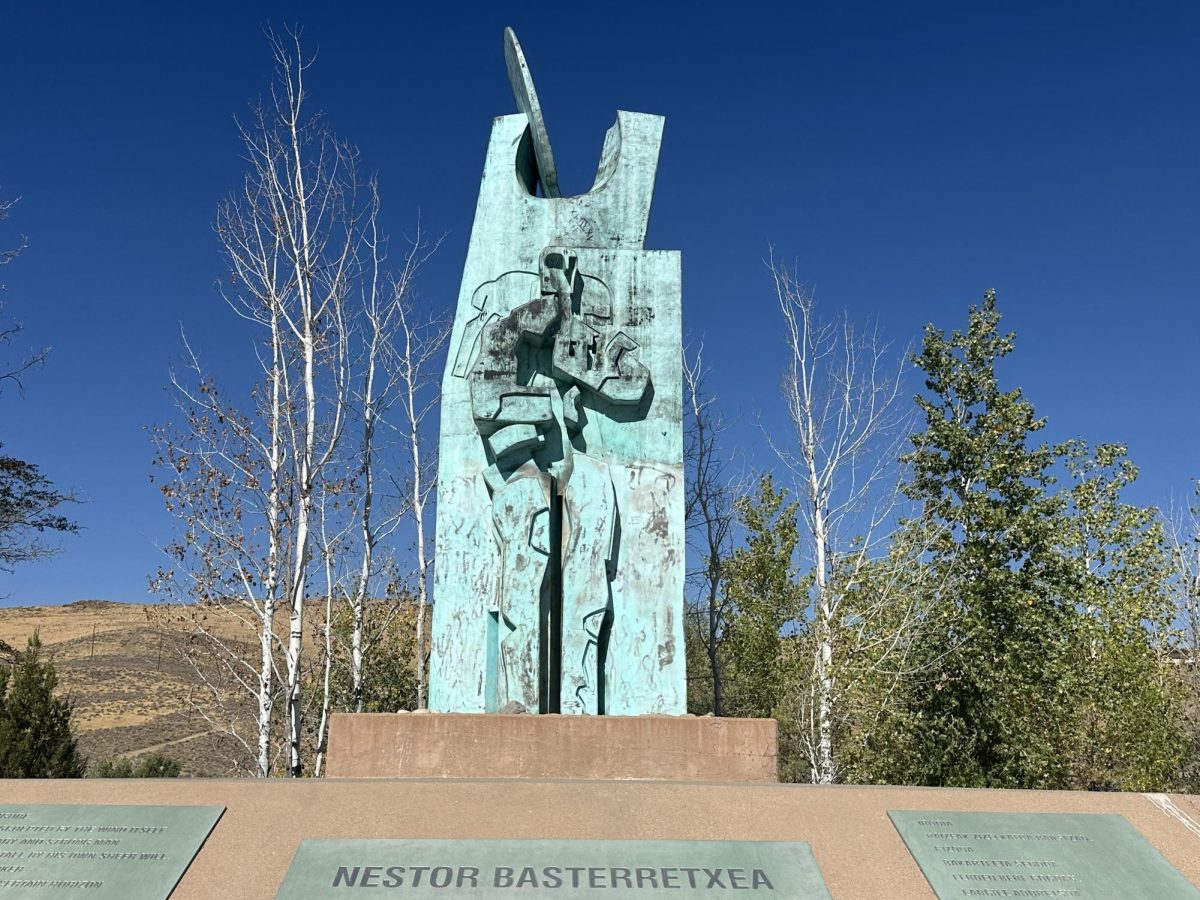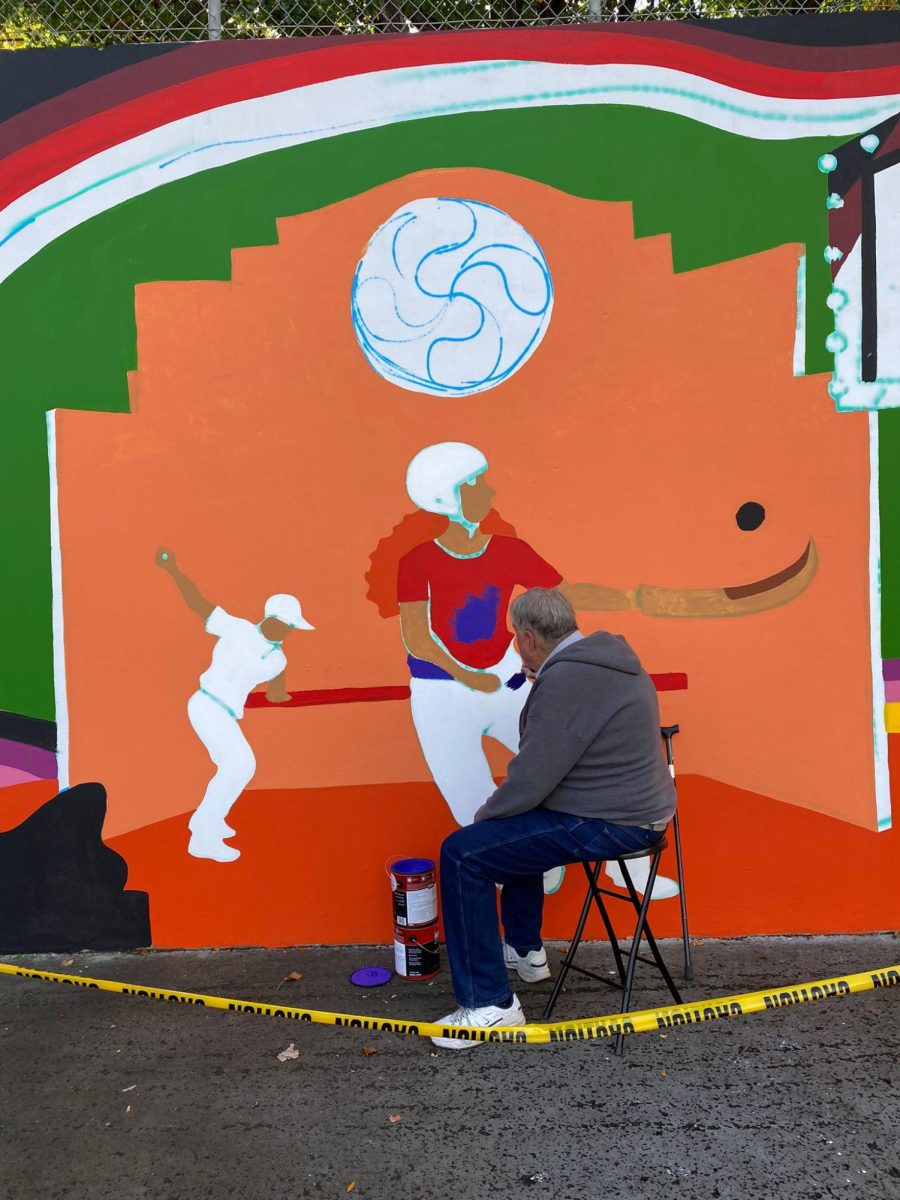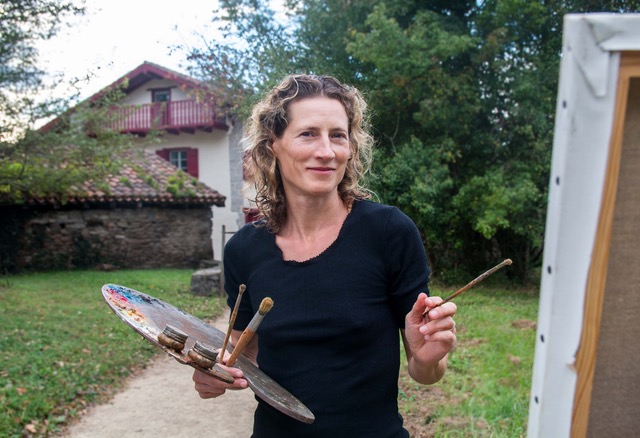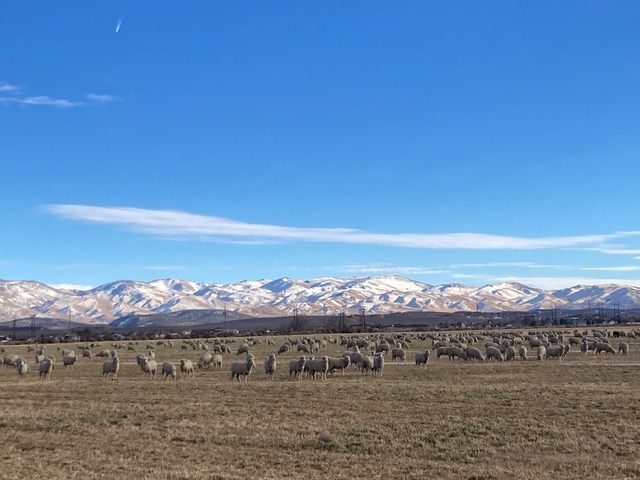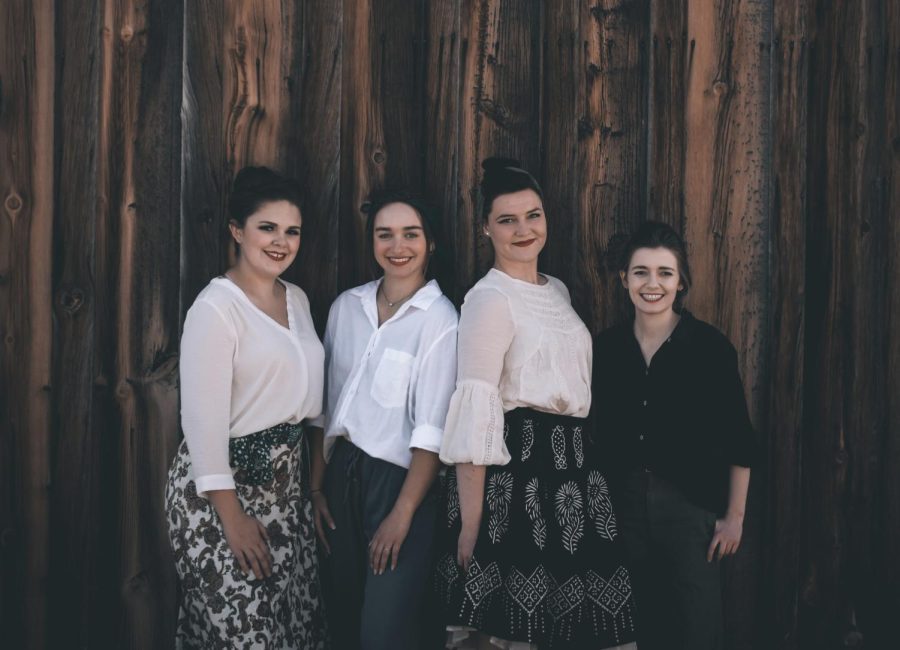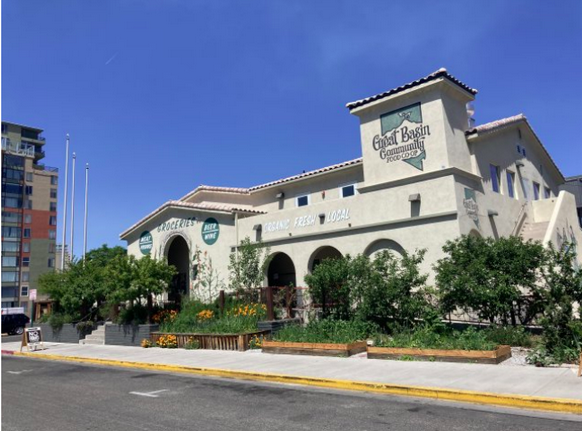By Nancy Zubiri
The National Basque Festival in Elko eclipses most of the West’s other Basque festivals, except perhaps for Jaialdi in Boise, which is held every five years.
Elko’s festival, held the weekend closest to 4th of July, features events over three action-packed days. Because of its location midway between California and Idaho, the festival attracts people from many Basque communities.
Elko native Bob Echeverria once jokingly explained how Elko became the location for the National Basque Festival. “Nobody was using the name,” he said, “so we took it.”
The festivities get underway on Friday evening with a kick-off. This year it was held at the fairgrounds and included a running of the bulls, in tribute to the popular San Fermin festival taking place concurrently in Pamplona. In the past, the kick-off was held in front of Stockman’s Hotel, and for three years, there was a running of the bulls where anyone could join in. And they did. It was sheer craziness. This year’s bull running was more of a spectator event, with just a few participants who were previously selected.
Saturday started with a citywide parade. The event attracts politicians and local organizations who march along Idaho Street along with the Basque groups, waving and tossing candies to people who line the sidewalks. The parade has been a feature of the festival since it started in 1964.
This year the Elko festival was the location of the annual convention of the North American Basque Organizations. And as part of the event, all the clubs’ dance groups were invited. Delegates from clubs from all over the U.S. also come for the convention, which includes a meeting to discuss ways to perpetuate the Basque culture.
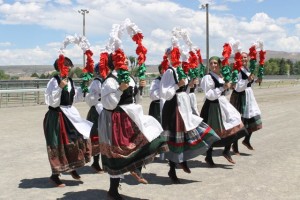
Dancers from Boise, Idaho; Salt Lake City, Utah; as well as Bakersfield, Chino and San Francisco in California traveled to Elko for the fun. All the groups, as well as Nevada’s groups from Reno, Winnemucca and Elko danced down Idaho Street, past the landmark courthouse and along the city’s main drag.
At the fairgrounds, the groups performed a variety of intricate dances in 93-degree heat. The crowd also enjoyed sporting competitions such as weight-carrying competitions by kids and adults. At least one kid, overestimating the task, couldn’t even pick up the two 75-pound weights, while another picked them up and just as quickly dropped them.
Brody Donahue of Elko, sporting a red Mohawk, decided to test his strength by taking a crack at carrying the weights, known as “txingas.” He kept up a steady pace with the two 75-lb. weights. But he finally put them down when his shorts slipped down to his ankles. Having completed a decent 503 feet, he came in third place in the junior competition.
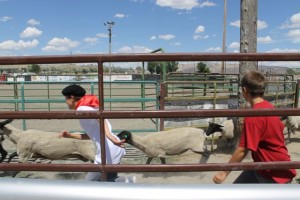
A running with the sheep for the kids also enthralled the crowd. People shouted in excitement as a crowd of boys sped down the dirt path ahead of a pack of sheep. But just as quickly the reaction turned to laughter as the sheep slipped through an open gate and disappeared into the field beyond. Rancher Don Couch brought out one of his trained sheep dogs who wowed the audience as he sped out, chased down the sheep and brought them back in.
Two relay teams participated in a competition of several Basque sports at once – weight lifting, log chopping and running. Each team had four to five members. Female wood chopper Stephanie Braña was a member of one team. She would chop, tag the next member of the team, who lifted a heavy weight while being spotted by two men. The relay passed to Gaizka Narvaiza, 12, who had to run to the end of a line of plastic bottles, pick one up and run it in as quickly as possible.
Narvaiza’s father, Aitor, was a weight-lifter on the same team, which ended up losing the relay.
“It’s a reality check,” said Aitor Narvaiza, of Elko, who participates every year. “You gotta be in shape.” He said that he works out at the gym regularly and also participates in weightlifting competitions at the Basque festivals in Boise and Gooding, Idaho and Reno and Winnemucca, Nevada.
A law-enforcement battle of tug of war, known in Euskera as “soka tira,” featured members of the Elko Police Department against the Elko County Sheriff’s Department. The police bested their deputy counterparts in the test of strength and endurance.
Later in the evening, as the heat subsided slightly, youths and adults battled on the Elko handball court nearby.
At the Elko clubhouse on Flagview Drive that evening, a mostly young crowd danced to the music of the popular Boise band “Amuma Says No.”
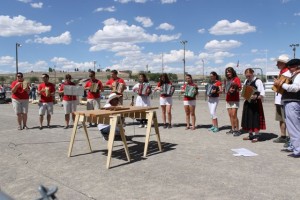
Sunday’s festivities were a bit more low-key, with a tri-tip barbecue lunch, more dancing and auctioning of a local sheepherder bread-baking contest at City Park. The afternoon heat was tempered by a quick rain and a short wind squall that blew off the huge green canopy that had been set up with a crane to shade the dancers and crowd.
“It took two-and-a-half hours to put up the shade and 45 seconds to bring it down,” said organizer Bob Echeverria.
After the dance performances, children and adults were encouraged to participate in jota and irrintzi contests. Participants were mostly locals, with longtime Elko family names such as Goicoechea, Fagoaga and Samper, dominating the floor.
In the jota contests, the winners included brother-and-sister team Brodey and Tandie Ratliff in the 8-and-under category; Amanda Goicoechea and Phoebe Fagoaga won in the 9-11 category and Franci Mendive and Ella Patane in the 12-14-year-old category. Josette Lazcano and Yusenka Izoco took the first-place $100 prize for the adults.
In the irrintzi contest, Malaina Alberdi Fesenmeier of Elko won first place, and Jesus Goñi of Reno won second place.

